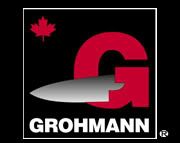Once upon a time, long, long ago and far, far away, a young man named Barney Alonzo walked out of his father's wagon shop and set off down the road to enlist in D Company 134th New York Volunteer Infantry. By all family accounts his avowed purpose was to do right in God's eyes and free the wretched slaves in the south and he felt that answering Mr. Lincoln's call for volunteers was the way he could do that.
Now, that's not to say that his father, Henry, felt the same way about events of the time. When he, in his turn, walked out of the shop and left to go into the service, he was making a calculated decision to improve his lot in life. You see, Henry had lost his father in 1814 and the only benefit to the family had been a land grant that Henry's mother had sold to speculators to, as the story goes, barely keep her family fed. You see, Henry's father, also Henry, had died of a disease at Plattsburgh while serving his country and that was how the cash poor but land rich country compensated its veterans and he hoped that they would do so again. With so much land out west, surely there would be money to be made. Hoping to increase his odds of survival to enjoy those benefits, Henry enlisted in K Company 9th New York Heavy Artillery, a unit which could reasonably be expected to avoid much active combat by being emplaced in some fortified place and left there. Indeed, that is what happened for much of the war but, for now, let us return to Barney.
Barney, although he had enlisted as a private soldier and was only 20 years old at the time, was selected to become his company's First Sergeant because he, probably unlike many, certainly better than most, could read, write and do arithmetic, vital skills for a First Sergeant who kept the company muster roll and wrote the brief reports that went to higher headquarters. Somehow, in performing these duties he was soon identified as a man who could lead and could be trusted to lead in difficult circumstances and he was given a commission as a 2nd Lieutenant in the same unit. As such he would go on to be present for the attack on Fredericksburg (although the regiment did not participate in the fighting), the Mud March which followed, fought at Chancellorsville, and was severely wounded at Gettysburg on the first day of fighting as the 134th was directly opposite the 21st North Carolina Infantry in the "brickyard".
Now, we'd call this a severe wound today but it was all the more so then. Barney had suffered a .58 caliber (that's over one-half of an inch diameter) soft lead bullet to enter his chest about 2" above the right nipple and exit his back just below the right shoulder blade. He had then to endure being captured by the enemy as they drove his regiment back towards a place called Cemetery Hill and then to be "evacuated" to the other side of Willoughby Run only a few yards away and left there, untreated, for four days in the July heat. It is said, again in family stories, that on the 4th day after he was wounded the people who were clearing the battlefield of the dead grabbed him to throw him onto the "meat wagon" when he "spit in their faces and cursed" thus earning a trip to hospital. Barney was very fortunate that the bullet hadn't struck any bone as it passed through his body but he spent several months in recovery and was assigned to the Invalid Corps in Washington, D.C. However, by November he was well enough to be promoted to 1st Lieutenant and return to his unit in time to be present in for the Chattanooga campaign and with his unit in the battle at Missionary Ridge.
However, the strains of service in the field with a lung that didn't work as well as it should was too much and Barney was discharged due to disability in September 1864. He then went home, married, opened a store in North Blenheim and, again according to family lore, didn't work another day in his life. Barney died on 23 December 1920.
Of course, every soldier in the field carries equipment that allows him to live and among those items of equipment is a canteen because water is critical to life. Most soldiers bring something back with them and, apparently, one of the things Barney brought back was his canteen. It is hard to say when but at some point the canteen lost its carrying strap and cork and was painted to decorate it. It was clearly a valued keepsake. So,was he carrying it when his Brigade retreated from Stonewall Jackson's attack at Chancellorsville, is this the same canteen from which Barney drank while suffering from his wound in the July heat at Gettysburg? Surely it was carried at Chattanooga, perhaps when he visited Lookout Mountain and then on the long journey home to Schoharie county. Years later his grandson loaned the canteen to a local museum and it "disappeared".
This year, in the midst of another national crisis, the museum decided that it no longer wanted or needed the canteen and they contacted me as the person to whom Grandpa had said it should go when it was returned. I am supposing this is because that I was named for Barney. Despite the barriers imposed by the pandemic it is now back with us, the family and while I may have it I see myself as only a caretaker. Someday, somebody else will have to take it in so that it might last another 155 years and tell the story of a young man who nearly sacrificed his life to free others.
Friday, July 17, 2020
Sunday, May 03, 2020
Taeji kalbi - pork ribs
this is my daughter's actual recipe (which I couldn't locate earlier). BEST by far to follow HER recipe...
1 rack (5 lbs.) spareribs
1 bunch green onions, chopped (large pieces)
2 medium onions, sliced (large pieces)
1 ½ tablespoons minced garlic
¼ cup red pepper paste
1 tablespoon red pepper flakes
2 tablespoons sesame oil
¼ cup brown sugar
1 ½ cups soy sauce
1 tablespoon black pepper
Mix all ingredients together well. You should be able to smell the sesame oil, see garlic, and the ribs should be reddened from the red pepper paste. Add additional portions of the ingredients as you see fit (a lot of times I have to add more soy sauce to get it to mix right). Marinate (preferably overnight, but can be shorter time). Preheat oven to 425 degrees. Line a large glass baking dish with aluminum foil. Place ribs in dish so that they are snuggled in close together. Pour the marinade and vegetables on top. Cook for 45 minutes until browned on top. Turn the ribs. Cook an additional 30 minutes until browned on top. This should serve 4 people for sure.
All I can say is that, properly done, you will be in hog heaven. My dad LOVED these even when I cooked them. He would eat them until he couldn't move from his chair. Margaret has her mother's and great-grandmother Parslow's touch and her ribs are actually better than anybody's. This is what I get for a Christmas present. It is WORTH THE WAIT.
1 rack (5 lbs.) spareribs
1 bunch green onions, chopped (large pieces)
2 medium onions, sliced (large pieces)
1 ½ tablespoons minced garlic
¼ cup red pepper paste
1 tablespoon red pepper flakes
2 tablespoons sesame oil
¼ cup brown sugar
1 ½ cups soy sauce
1 tablespoon black pepper
Mix all ingredients together well. You should be able to smell the sesame oil, see garlic, and the ribs should be reddened from the red pepper paste. Add additional portions of the ingredients as you see fit (a lot of times I have to add more soy sauce to get it to mix right). Marinate (preferably overnight, but can be shorter time). Preheat oven to 425 degrees. Line a large glass baking dish with aluminum foil. Place ribs in dish so that they are snuggled in close together. Pour the marinade and vegetables on top. Cook for 45 minutes until browned on top. Turn the ribs. Cook an additional 30 minutes until browned on top. This should serve 4 people for sure.
All I can say is that, properly done, you will be in hog heaven. My dad LOVED these even when I cooked them. He would eat them until he couldn't move from his chair. Margaret has her mother's and great-grandmother Parslow's touch and her ribs are actually better than anybody's. This is what I get for a Christmas present. It is WORTH THE WAIT.
Saturday, February 15, 2020
Making good evil and evil good...
"There's no way to rule innocent men. The only power any government has is the power to crack down on criminals. Well, when there aren't enough criminals, one makes them. One declares so many things to be a crime that it becomes impossible to live without breaking laws." -- Ayn Rand
Or, if I may paraphrase Stalin, "show me the man and I will show you the crime."
Or, if I may paraphrase Stalin, "show me the man and I will show you the crime."
Subscribe to:
Posts (Atom)























